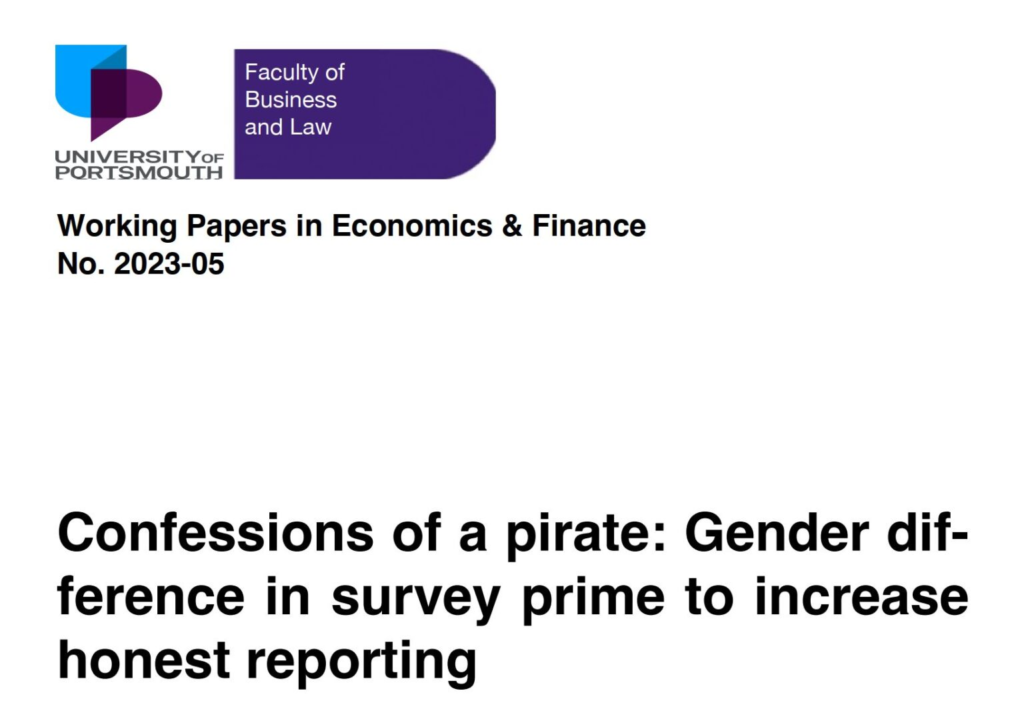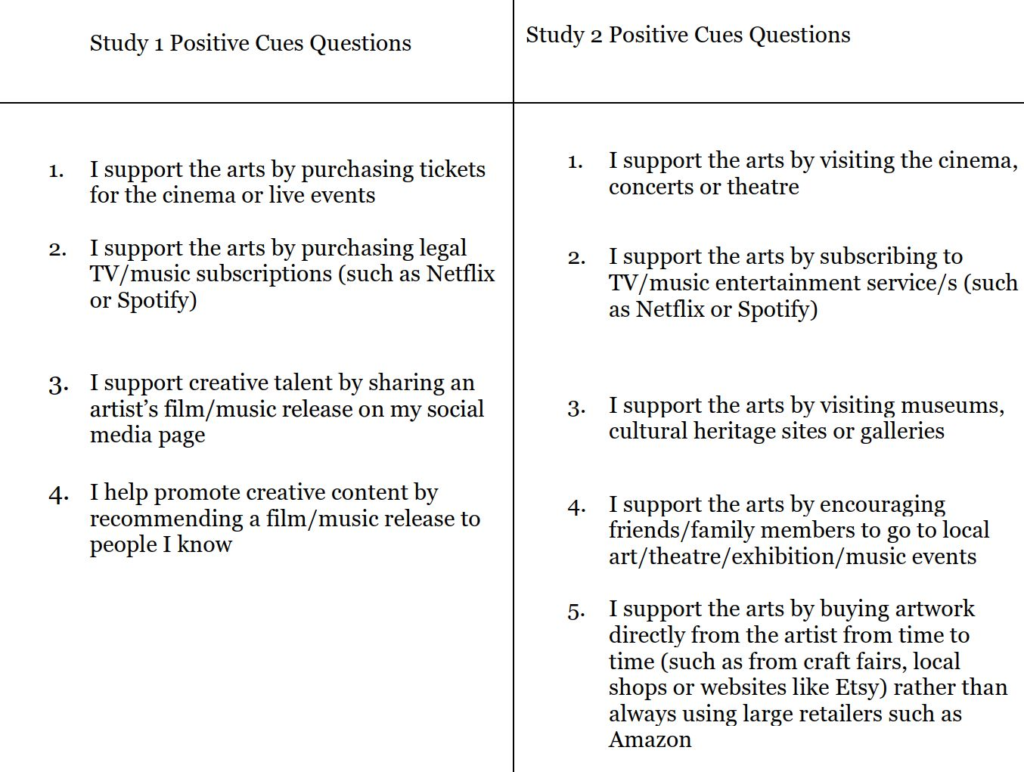Traditional piracy-related consumer research relies heavily on surveys to gather data and identify trends in piracy habits. However, recent experimental research has revealed that the responses collected in surveys can be influenced by how the questions are framed or “primed.”
Priming refers to the subtle cues or prompts provided to participants before they answer survey questions. These cues can shape respondents’ perceptions and affect the way they recall and report their behaviors.

For example, if a survey question emphasizes the illegality or ethical concerns of piracy, respondents may underreport their engagement in such activities due to social desirability bias or fear of judgment. Conversely, if the survey question focuses on the convenience or affordability of pirated content, respondents may be more inclined to admit to piracy behaviors.
This research highlights the importance of considering survey design and priming effects when interpreting piracy-related consumer data. It suggests that traditional survey methods may not always capture the full extent of piracy behaviors and attitudes accurately. As such, researchers may need to explore alternative methodologies or refine survey techniques to obtain more reliable insights into piracy habits.
The working paper from University of Portsmouth researchers proposes a method to potentially mitigate biases in self-reported piracy surveys and encourage more honest responses from participants.
One approach suggested in the paper involves using a technique called “randomized response.” In this method, participants are asked to respond to a question about piracy using a randomized process that adds an element of uncertainty to their responses. This uncertainty can help alleviate concerns about judgment or repercussions for admitting to piracy behaviors.
For example, instead of directly asking participants how often they engage in piracy, researchers might ask them to flip a coin in private. If the coin lands on heads, participants are instructed to answer the piracy question truthfully. If it lands on tails, they are asked to provide a predetermined response, such as “yes” or “no,” regardless of their actual behavior.
By introducing randomness into the responses, researchers can create a degree of anonymity and reduce the pressure for participants to provide socially desirable answers. This can lead to more honest reporting of piracy behaviors and provide researchers with more accurate data to analyze.
While randomized response techniques have been used in other areas of research to elicit sensitive information, their application to piracy surveys is relatively novel. Further research and experimentation would be needed to evaluate the effectiveness of this approach and its impact on the reliability of piracy-related consumer data.

The results of the first study showed that priming respondents with positive cues significantly increased the reported frequency of piracy compared to the control group where no cues were used. However, negative cues did not have a significant effect on piracy reports.
Building on these findings, the second study aimed to replicate and extend the results by examining the role of self-esteem in the priming effect. Self-esteem was considered as a potential moderator that could influence how individuals respond to positive and negative cues.
The results of the second study revealed that self-esteem did indeed moderate the effect of positive cues on piracy reports. Specifically, individuals with lower self-esteem were more susceptible to the influence of positive cues, leading to higher reported piracy activity. Conversely, individuals with higher self-esteem were less influenced by the positive cues and reported piracy activity at similar levels regardless of the cue.
These findings suggest that priming individuals with positive cues can effectively increase self-reported piracy activity, especially among those with lower self-esteem. This indicates that subtle cues can influence responses in piracy surveys, highlighting the importance of considering psychological factors in understanding and interpreting self-reported piracy behavior.

The findings from these studies suggest that positive cues, such as indications of support for the creative industries, can influence respondents’ self-reported piracy activity in surveys. When participants are primed with cues that align with positive behavior, such as paying for streaming services like Spotify or Netflix, they tend to report higher levels of piracy usage.
One possible explanation for this phenomenon is that the positive cues create a cognitive dissonance, making it easier for individuals to rationalize their piracy behavior after expressing support for legitimate content consumption. This effect is particularly pronounced among men, who tend to pirate more frequently and may be more inclined to use rationalizations to justify their actions.
Moreover, the influence of these cues on piracy reporting varies based on respondents’ levels of social desirability bias. While individuals with higher social desirability scores tend to report lower piracy consumption overall, the positive cues still lead to increased self-reported piracy among this group. Interestingly, the effect of positive cues on piracy reporting is not observed among respondents with lower social desirability scores.
Overall, these findings highlight the importance of survey design and question framing in influencing respondents’ reporting of sensitive or undesirable behaviors. By understanding how positive cues can impact piracy reporting, researchers can better interpret survey data and account for biases in their analyses.

The implications of these findings extend beyond piracy research to various fields, including market research and potentially even criminal investigations. By incorporating positive cues into survey design, researchers may elicit more honest responses regarding past behaviors, attitudes, and intentions, even for activities that are perceived as more sensitive or criminal in nature.
This intervention could be particularly valuable for understanding behaviors that individuals may be inclined to underreport due to social desirability biases or fear of repercussions. By creating a context that promotes positive behaviors, respondents may feel more comfortable disclosing information about behaviors they might otherwise conceal.
However, further research is needed to validate these findings across different populations and to explore additional factors that may influence response accuracy. Additionally, investigating the baseline levels of underreporting in piracy habits and how they may be affected by awareness of monitoring could provide valuable insights into the reliability of self-reported data.
Ultimately, while direct measurement of piracy activity would be ideal, the potential for behavior change in response to monitoring underscores the importance of developing strategies, such as positive cue priming, to improve the accuracy of self-reported data in research studies.






